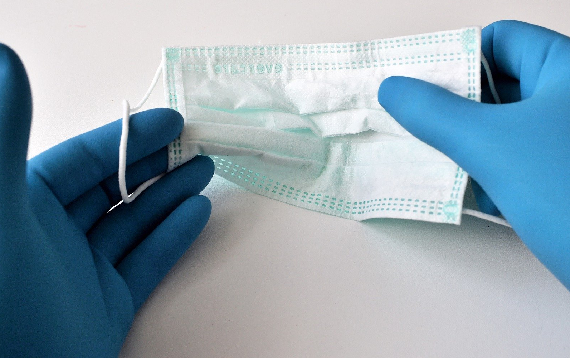In 2019, Swedish climate activist Greta Thunberg was named Time Magazine’s person of the year, becoming an icon for her generation. Thousands of young people around the world used Fridays to turn out on the streets and demand government policies to stem the damage being caused to the planet. We stopped talking about climate change and began talking about the ‘climate crisis or ‘climate emergency’; grocery stores began to offer products in more efficient, recyclable packaging, and our attention turned to problems such as the heavy carbon footprint of short-distance air travel, compared to other, less polluting modes of transportation.
Given the above, it seemed as if sustainability would finally take hold in 2020 as one of the topics of most concern for the world’s population. Then COVID-19 hit, and global priorities took a turn. Is it possible to surmount the exceptional circumstances that must be endured until a reliable vaccine can be developed and made available to the entire world, without losing sight of the environmental achievements we have made in recent years?
The environmental impact of face masks
Face masks have become a basic, and in many cases mandatory, accessory, thanks to their efficacy at preventing the spread of disease. An unwanted consequence of mass mask usage is the agglomeration of used masks left in public spaces, resulting in shocking images such as those distributed by the conservation organization, OceansAsia, a couple of weeks ago. The photographs show vast numbers of surgical masks that had washed ashore in the Soko Islands (Hong Kong).

LIBERA, a joint SEO/BirdLife and Ecoembes initiative dedicated to fighting trash disposal in natural spaces, is concerned. “Given how light their material is and the short service life of masks, we are worried that these masks will inevitably be dumped en masse in our natural spaces,” it states. “The impact of these products will be similar to those produced by other types of plastics dumped in the environment: direct and indirect ingestion by the wildlife, causing respiratory and gastrointestinal obstructions or death by starvation, and the fundamental problem of entanglement.”
Proper waste management is more important than ever. Protective personal equipment (PPE) such as gloves and masks should not be recycled for health and safety reasons, and should go into the general rubbish container, because “as soon as PPE is considered waste, it should not be subject to any human interaction, in order to avoid possible infection of sanitation workers,” LIBERA states. Extra precautions have been taken in Spain to protect workers at recycling centers: “The health and safety committees, by designating the 96 recycling sorting and treatment plants as essential services, has been clear from the outset that the safety of these workers is their first priority, and they have acted consistently. With this in mind, they have further enforced the use of protective gear normally used (face masks, gloves, glasses, etc.), have organized shifts accordingly, and have established mandatory breaks in order to minimize contact between fellow workers, adopting social distancing, etc.”
Sustainable alternatives to disposable face masks
Despite the enormous volume of waste that the new requirement for mask usage generates, Spain’s National Institute for Workplace Health and Safety does not recommend the use of reusable homemade cloth masks, because conclusions from available studies reveal that “they protect less than surgical masks and can even increase the risk of infection given humidity, the diffusion of liquids, and virus retention.”
“It is normal that the coronavirus crisis has reordered some priorities, but the principles are non-negotiable”
Nevertheless, there are various lines of research currently underway aiming to create protective equipment for the general public that has less of an impact on the environment. In Spain, the Senior Council for Scientific Research announced some weeks ago a project developing biodegradable antiviral filters that could be changed daily in masks. Other alternatives include those of Korea’s science and technology university, KAIST, which announced in March that it had succeeded in creating reusable filters that can then be washed, while maintaining efficacy similar to the disposable surgical masks. Or, the Hong Kong Polytechnic University, which in April announced the launch of facial protection equipment that could be reused after being disinfected; it should be ready for at-scale production and sold at affordable prices.
Only time will tell if any of these sustainable alternatives to disposable PPE will manage to reach the general public. Until then, environmental associations like the LIBERA initiative insist that advances in materials and environmental action represent a road of no return, which must be taken: “It is normal that the coronavirus crisis has reordered some priorities, but the principles are non-negotiable. Therefore, our fight against waste and commitment to responsible production and consumption, as well as a recycling that contributes to the reduction of the over-exploitation of raw materials, is as strong as ever.”
Comments on this publication